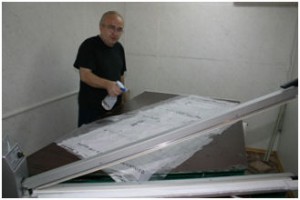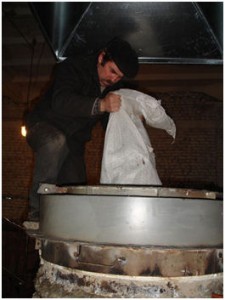The Way Things are Done
One hundred percent of Coral’s projects start on the paper, the holding looks for innovative ideas that yet have not been deeply researched.
The life of a project at Coral GROUP starts with a theoretical conjecture that is being brought before a panel of experts, including the holding’s chairman and the chief scientist. There are four distinct stages the project must path before the technology will be sufficiently developed to be implemented in industry.
 Stage 1 (5 – 7 weeks): The conjecture is presented before a panel of experts in the holding, if the idea sound plausible from a practical point of view, its technical potential is then determined with the help of outside scientist from the specific field. After the idea is approved by the panel and the outsource experts, preliminary testing can begin.
Stage 1 (5 – 7 weeks): The conjecture is presented before a panel of experts in the holding, if the idea sound plausible from a practical point of view, its technical potential is then determined with the help of outside scientist from the specific field. After the idea is approved by the panel and the outsource experts, preliminary testing can begin.
Stage 2 (2 – 6 month): After the idea proves reasonably achievable, a laboratory pilot is constructed. Numerous tests are then preformed on the laboratory prototype to determine the next step of the research. If the pilot version of the technology proves to have positive potential, the scientist and engineers move to the next stage.
 Stage 3 (4 – 12 month): An industrial scale prototype of the technological solution is constructed, produced materials are tested in laboratories and their value is determined. This stage is one of the more critical points in the life of a project, as the leap from laboratory to industrial processes seldom proves unproblematic.
Stage 3 (4 – 12 month): An industrial scale prototype of the technological solution is constructed, produced materials are tested in laboratories and their value is determined. This stage is one of the more critical points in the life of a project, as the leap from laboratory to industrial processes seldom proves unproblematic.
Stage 4 (up 1.5 years): After completion of the third stage, the team working on the project has all the knowledge of the researched technology, in terms of its innovative nature. Next, the team must construct a full scale production system around the invention to show its economical and technological validity in a complex of procedures, to test its ecological potential as part of real production line and finetune the processes involved.
After all four stages have been completed; the technology is ready to move to the market, where it can benefit the environment and general public.
